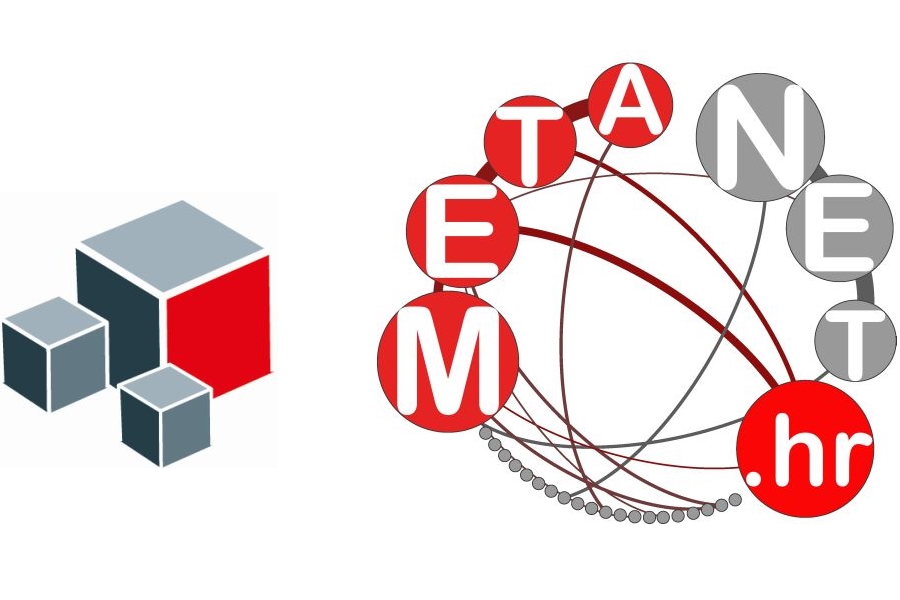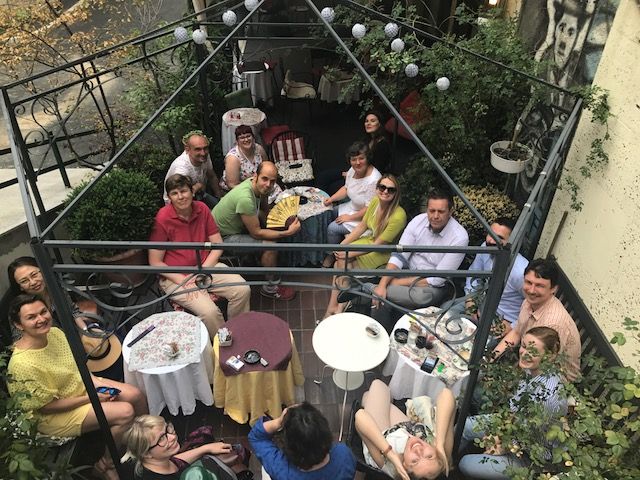Workshop
University of Zagreb
1–2 June 2017
Instructor: Prof. Tony Veale
University College Dublin
Organizers:
Dr. Kristina S. Despot (Institute of Croatian Language and Linguistics)
Dr. Mateusz-Milan Stanojević (University of Zagreb)
The Institute of Croatian Language and Linguistics and the Croatian Science Foundation in collaboration with RaAM will host a 2-day workshop on computational foundations of linguistic creativity: Metaphor, Analogy, Simile, Blending, Narrative, and Irony.
The workshop will take place at the University of Zagreb, on June 1 and June 2 2017.
Day 1 THEORY:
Metaphor in the Age of Mechanical Production When Donald Davidson famously described metaphor as “the dreamwork of language” his memorable phrasing captured the intriguing contradictions inherent in this fascinating topic. Metaphors can be vivid yet indeterminate, detailed yet open-ended, and meaningful yet mysterious, so much so that it might seem naïve to seek a mechanistic and algorithmic account of the workings of so creative a human aptitude. One might ask if any creative phenomenon can ever be satisfactorily explained with an algorithmic mindset. Yet this workshop turns this question on its head, to argue that no explanation of a creative phenomenon is ever satisfactory unless it can provide algorithmic detail on the mental processes and representations that underpin our ability to create new meanings from familiar forms. Computational modeling is the true acid test of a cognitive theory precisely because our machines are so unforgiving: no theory can be turned into a working implementation without first filling every gap and exposing every assumption. Though we may well disagree with the assumptions made by a computationalist, we always know precisely what those assumptions are. The first day of the workshop will outline an algorithmic and knowledgebased approach to Metaphor, Analogy, Simile, Blending, Narrative, and Irony, in which we aim to understand the knowledge-level and process-level demands of creative language production. We do this by considering what a dumb computer would need to “know” before it could understand or generate human-level instances of creative linguistic phenomena. Along the way we will demonstrate that the computationalist perspective is not the sole preserve of computer scientists and mathematicians, but is a product of modernist thinking more generally. Ideas in computer modeling will be related to parallel work in the arts in the 20th century, to show how artists and scientists have converged toward a common perspective on these most divergent of creative linguistic phenomena.
Day 2 PRACTICE:
On Twitter, Tweet Dreams Are Made Of This On the second day, we will interactively explore Web implementations of the above phenomena in the morning and host a “live-coding” session in the afternoon. The audience will participate in shaping the creative outputs of a topical Twitterbot. The latter will be framed by discussion of relevant ideas from thinkers from outside computer science, such as Queneau and Bergson. Twitterbot construction is an engaging development task that captures all of the joy of computational creativity as a research endeavor. Bots allow us to quickly turn our clever ideas into working systems, where our ideas become open to immediate scrutiny by us and countless others on Twitter. Every hit and every miss of our generative system is preserved in the bot’s Twitter timeline, making a creative Twitterbot a thing of beauty and a joy forever (not least because our bots continue to deliver fresh new data for our experiments and for our research papers). This tutorial will be a decidedly hands-on affair that will revolve around the live deconstruction and audience-led reassembly of a *Trump* Twitterbot. Participants will be given the knowledge-base for the working bot, and we will collectively dissect it as though we were schoolkids dissecting live frogs. But unlike those poor frogs, our bot can be put back together again in new and interesting ways. Participants have two modes of participation to suit their own skill-level: they can do their own coding on their laptops, or they can contribute ideas and suggestions to the host, who will conduct a live coding session. The tutorial will accommodate strong and weak coders, as well as those who prefer to operate at the level of ideas only. Fans of the Oulipo movement and Raymond Queneau’s Exercises in Style will have ample opportunity to create their own Queneau-like linguistic framings.
The language of instruction is English.
Program
June 1 THEORY: Metaphor in the Age of Mechanical Production
10.00–11.30 Theory session
11.30–12.00 Coffee break
12.00–13.30 Theory session
13.30–15.00 Lunch
15.00–16.30 Theory session
16.30–17.00 Coffee break
17.00–18.30 Theory session
June 2 PRACTICE: Tweet Dreams Are Made of This
10.00–11.30 Practice session
11.30–12.00 Coffee break
12.00–13.30 Practice session
13.30–15.00 Lunch
15.00–16.30 Practice session
16.30–17.00 Coffee break
17.00–18.30 Practice session
Important dates
Application Deadline: 1 May 2017.
Notification of Acceptance: 5 May 2017.
Workshop dates June 1–2 2017
Registration fee No registration fee.
Dinner (optional): 30 Euro
Lectures, coffee breaks and lunch for each training day will be provided by the organizer.
Any other expenses (travel, accommodation) are the sole responsibility of the participants.
How to apply
To apply, please send an email to the following addresses: kristina.despot@gmail.com and mmstanoje@ffzg.hr.
In the email, please state your name, title, affiliation, and the project/research you are currently working on.
The workshop is limited to 30 participants. Places will be allocated on a first-come first-served basis, so make sure you apply as early as possible to ensure participation.
Depending on interest, social-cultural program will be organized in the evenings.
Questions about this workshop should be sent to one of the organizers: Kristina Despot (kristina.despot@gmail.com) or Mateusz-Milan Stanojević (mmstanoje@ffzg.hr). Questions related to practical matters should be sent to one of the workshop secretaries: Ivana Brač (ibrac@ihjj.hr) or Ivan Pandžić (ipandzic@ihjj.hr).
We look forward to welcoming you in Zagreb!
Dr. Kristina S. Despot and Dr. Mateusz-Milan Stanojević
CONFERENCE PHOTOS
Please open the following link in order to access the conference photographs.

